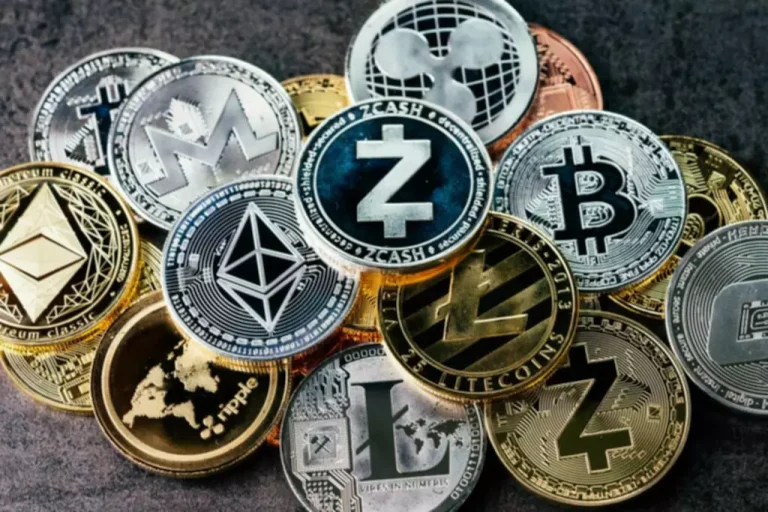Content
Blockchain technology has proven useful for a variety of industries — from finance to supply chain to real estate to gambling. At heart, blockchain is a novel system for generating consensus among decentralized peers without a governing authority. As the technology continues to mature, its applications are likely to expand further. Industries ranging from Decentralized finance real estate to entertainment, for example, are exploring blockchain’s potential to revolutionize their operations. Moreover, governments and enterprises are increasingly adopting blockchain for tasks like digital identity management, cross-border payments, and secure data sharing. These developments suggest blockchain is poised to play a pivotal role in shaping the future of the digital economy.
Key features of blockchain technology
A private blockchain is permissioned.[55] One cannot join it unless invited by the network administrators. For banks, blockchain makes it easier to trade currencies, secure loans and process payments. This tech acts as a single-layer, source-of-truth that’s designed to track every transaction ever made by retail digital assets trading its users. This immutability protects against fraud in banking, leading to faster settlement times, and provides a built-in monitor for money laundering. Banks also benefit from faster cross-border transactions at reduced costs and high-security data encryption. As it is now, every node of a blockchain network stores a copy of the entire data chain and processes every transaction.
How Anonymous is the Blockchain?
- Healthcare providers can leverage blockchain to store their patients’ medical records securely.
- While the hackers may have been anonymous—except for their wallet address—the crypto they extracted is easily traceable because the wallet addresses are stored on the blockchain.
- Because Tom doesn’t have the funds to send $10 to Ben, this transaction would not be valid.
- These trees are a computer science structure for storing data by linking blocks using cryptography.
- Blockchain is in many ways more efficient and globally accessible than traditional third-party payments providers.
This person has been scammed before by someone selling a fake ticket, so she https://www.xcritical.com/ decides to try one of the blockchain-enabled decentralized ticket exchange websites that have been created in the past few years. On these sites, every ticket is assigned a unique, immutable, and verifiable identity that is tied to a real person. Before the concertgoer purchases her ticket, the majority of the nodes on the network validate the seller’s credentials, ensuring that the ticket is in fact real. The term cloud refers to computing services that can be accessed online. You can access Software as a Service (SaaS), Product as a Service (PaaS), and Infrastructure as a Service (IaaS) from the cloud. Cloud providers manage their hardware and infrastructure and give you access to these computing resources over the internet.
Blockchain Technology Explained
Blockchains reach consensus by following the rules of “cryptography”, which is where the term “cryptocurrency” comes from. Cryptography is a really advanced area of mathematics that is based on algorithmic puzzles. Like in a real-world container, there is only a certain amount of transactions that the block can carry, which is determined by the maximum block size. Every blockchain has its own maximum block size, which is normally the amount of data (megabytes) it can hold. Blockchain technology involves enhancing scalability, energy efficiency, and interoperability through advanced consensus mechanisms and protocols.
He is a CFA charterholder as well as holding FINRA Series 7, 55 & 63 licenses. He currently researches and teaches economic sociology and the social studies of finance at the Hebrew University in Jerusalem.
However, it also means there is no real authority on who controls Bitcoin’s code or how it is edited. Because of this, anyone can suggest changes or upgrades to the system. If a majority of the network users agree that the new version of the code with the upgrade is sound and worthwhile, then Bitcoin can be updated.
Let’s compare how data is stored and shared in standard (non-blockchain) systems to how it is stored and shared in a blockchain system. In 2022, the US Securities and Exchange Commission (SEC) charged some cryptocurrency companies with breaking securities laws. Without clear rules, it can create uncertainty for businesses and investors. Technology is assumed to offer high security as all the transactions of Blockchain are cryptographically secure and provide integrity. Thus, instead of relying on third parties, you need to put your trust in cryptographic algorithms.
When consensus is no longer possible, other computers in the network are aware that a problem has occurred, and no new blocks will be added to the chain until the problem is solved. Typically, the block causing the error will be discarded and the consensus process will be repeated. And large corporations launching successful pilots will build confidence for consumers and other organizations.
Players can tap into a global liquidity pool and trade in-game assets at decentralized marketplaces while maintaining full custody over them, enabling fully community-owned blockchain games. With the potential of interoperable blockchain games and the metaverse, players might be able to trade in-game assets between different games in the future. Blockchains can serve as immutable environments for storing historical records. Having a highly trusted set of records reduces friction within fragmented markets which often contain many disparate databases. Blockchains offer a “Ledger of Record” that can improve the tracking of financial contracts, storing of medical records, tracking of identities, and much more. A private, or permissioned, blockchain allows organizations to set controls on who can access blockchain data.

By enabling faster and more secure information exchange, Liink aims to streamline processes like account verification and payment dispute resolution. When you obtain a cryptocurrency, you store it in a digital wallet. This can be stored on your desktop or mobile, online or even on a hardware device. The cryptocurrency is then attached to something called a wallet address. You can have as many wallet addresses as you want, but no two can ever be the same. Several projects are using the blockchain as a global public registry for assets.
DeFi is different from centralized finance models within cryptocurrency markets in that there’s no centralized authority that can control or intercede in transactions. These steps take place in near real time and involve a range of elements. Nodes in public blockchain networks are referred to as miners; they’re typically paid for this task — often in processes called proof of work or proof of stake — usually in the form of cryptocurrency. Bitcoin is a digital currency that operates without any centralized control. Bitcoins were originally created to make financial transactions online but are now considered digital assets that can be converted to any other global currency, like USD or euros. A public Bitcoin blockchain network creates and manages the central ledger.

Everyone’s waiting for their turn, and it takes a while to get through. Transactions can take a while to confirm, sometimes over 10 minutes! This might sound like a little time, but imagine if your valuable assets get stuck in the queue for 600 seconds with no trace. That’s because every transaction has to be checked by all the computers (nodes) on the network.
Instead of solving complex puzzles, it’s like having a voting system that saves power. And some folks are using renewable energy to make Blockchain more eco-friendly. Many businesses and people are still not familiar with it or how it works.
For instance, the inventors of Ethereum decided to use blockchain technology in asset transfer transactions. Traditional financial systems, like banks and stock exchanges, use blockchain services to manage online payments, accounts, and market trading. For example, Singapore Exchange Limited, an investment holding company that provides financial trading services throughout Asia, uses blockchain technology to build a more efficient interbank payment account. By adopting blockchain, they solved several challenges, including batch processing and manual reconciliation of several thousand financial transactions.
Leave a Reply